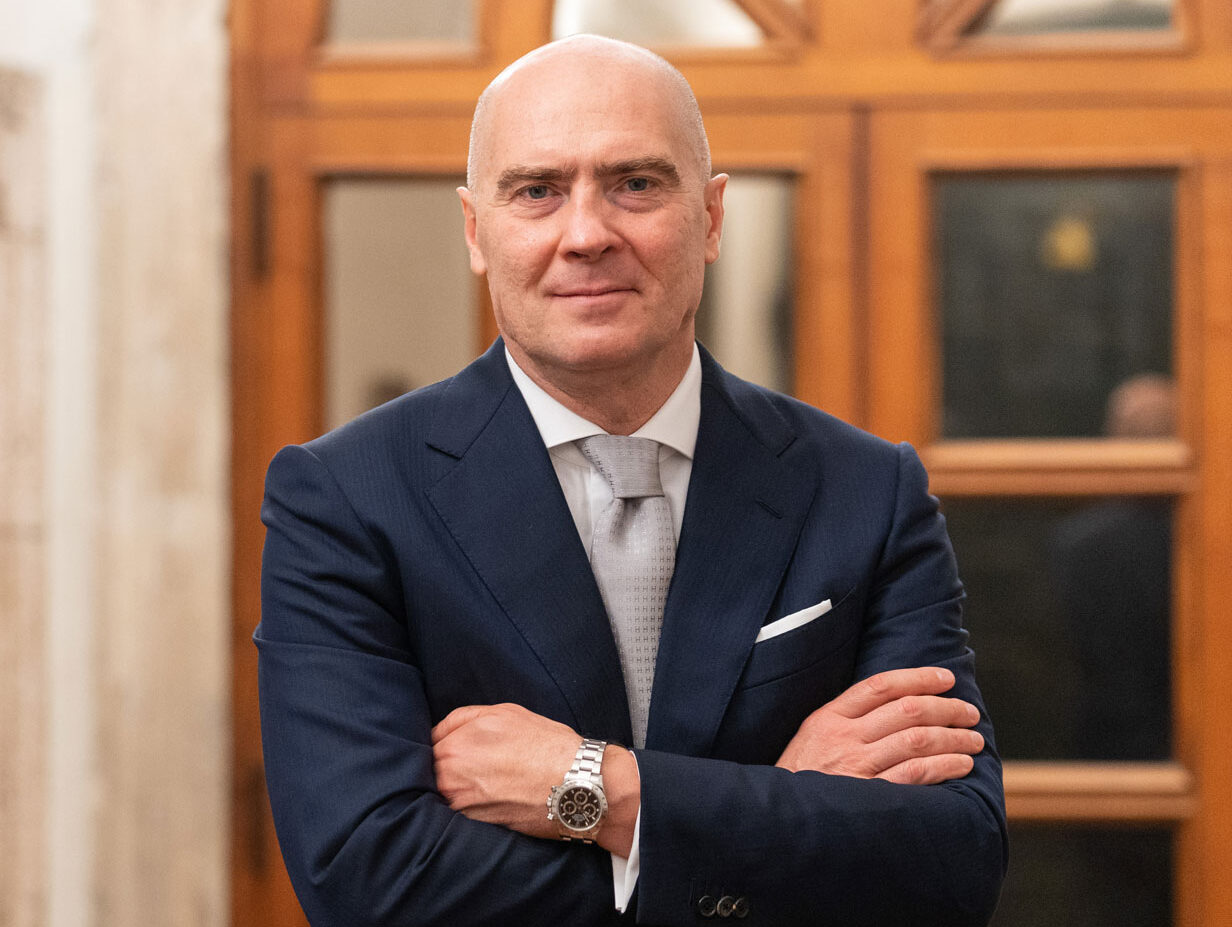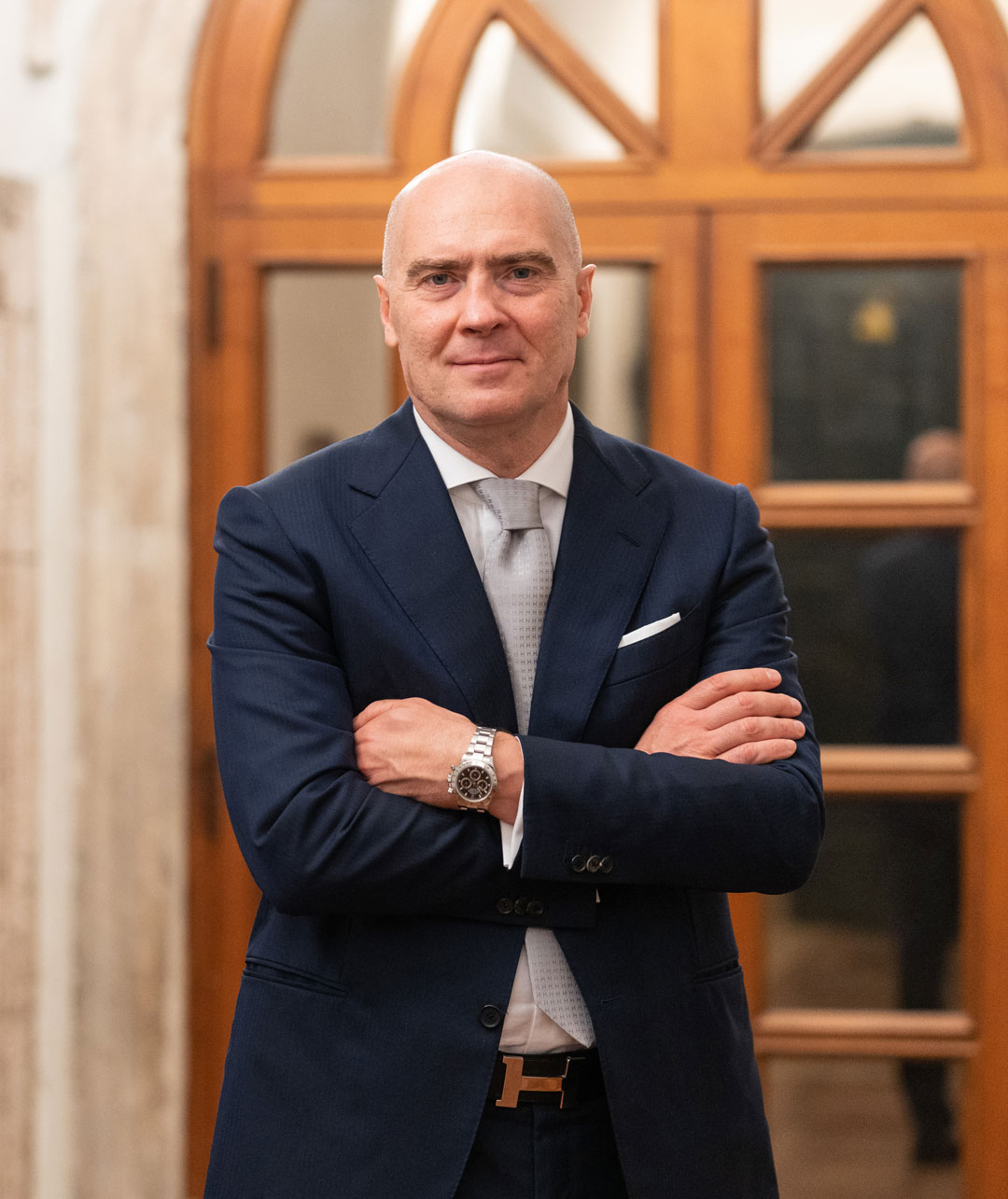

Since your appointment as President of Farmindustria in July 2022, could you share your key strategic objectives and vision for the Association and the significant decisions taken so far to align with these? What are the perceptions and values you aim for the Association to evoke?
As the president of Farmindustria, I am in charge of ensuring we pursue our goals as an industry that is innovative, highly technological and strategic for national security, the health of citizens, economic growth, employment and the efficiency of public spending. This is why we must make its value known as we are doing along with other stakeholders at the national and international level.
My vision, together with our member companies, is that due to geopolitical and demographic factors, we are experiencing an epochal transformation, with international competition and innovation that is running incredibly fast thanks to new technologies, big data and artificial intelligence.
Therefore, this is the time to develop a new vision that allows Italy and the EU to grow and to bridge the competitive gap with other countries quickly, in a patient-centered system aimed at the future.
This is an industry that helps citizens live longer and better. Our industry in Italy also represents an asset for development for the whole country and for its diverse territories and it needs to be considered as such in designing new industrial policies.
For a picture of the value of our industry for the country, just think Research & Development: in 2022, the pharmaceutical industry in Italy invested €1.9 billion in R&D, and €3.3 billion if we add investments in manufacturing, with a +22% growth over the last five years, a +4% compound annual growth rate (CAGR). 10% of total employees are in R&D activities, with a +7.8% growth in the last five years. Investments in R&D by pharma companies represent about +7% of total R&D investments in the country, currently one of the main contributions to the R&D ecosystem in Italy. Pharmaceutical R&D is conducted in network with innovative SMEs, start-ups, science & technology parks, academia, non-profit institutions, both in private and public partnership.
These results prove the commitment of pharma companies to invest in Italy, thanks also to the quality of Human Resources and Italian excellencies as the NHS along with other actors of the R&D ecosystem. But it is necessary to improve the attractiveness of the Italian R&D framework as well as Europe’s: in fact, in the last twenty years, Europe (EU27+UK+CH) has lost ground compared to other macro-regions like US and Asia. Europe’s global share of investment in R&D has decreased by 10%, compared to the growth of US and China. Improvement of the R&D framework it is not only a crucial matter for Italy, but it is a challenge for all of the continent.
In this global competition we need more Europe in the world and also more Italy in Europe to attract investments, innovation, to secure and rebuild strategic supply chains and to reduce the dependency on extra-UE areas as regards active ingredients and intermediates.
It is then urgent to revise the proposal for the revision of the European pharmaceutical legislation presented by the EU Commission. A proposal that weakens intellectual property and therefore competitiveness and quality of care, with risks also for the health of citizens. For instance, it reduces both data protection from 8 to 6 years and market exclusivity for orphan medicines. The governments of Italy and Germany expressed their concern about this.
I have to say that the new Government, that was sworn in shortly after I became president of Farmindustria, has shown great openness to dialogue, in a climate of trust, demonstrating in practice that it believes in our industry as a value for the entire nation, also by taking a strong stance within the European Union for a robust intellectual property framework and steps forward for the governance of expenditure which is needed in order to be competitive and with increased resources.
You have underlined the commitment of Italian pharmaceutical companies to digital innovation. How is Farmindustria leveraging this focus on digital technologies and services to increase growth and economic position? What role are you personally playing in making Farmindustria more innovative?
Farmindustria is strongly committed to “digital transformation”. This doesn’t mean just to digitalize current rules and procedures, but also to create a new “connected care” system. We have created an internal Committee composed of CEOs and Country Managers of our member companies to study the impact of technologies on the productivity of the healthcare sector and to encourage institutional stakeholders to adopt new organizational models (“digital by design”).
Farmindustria is carrying out partnership projects with public and private institutions to multiply the use of Decentralized Clinical Trials, facilitate access to Digital Therapeutics, collect Real World Data to allow a correct «secondary use» of data, analyze these data with Artificial Intelligence and Machine Learning systems and to facilitate therapeutic pathways to the benefit of patients. We are working on the adoption of digital platforms to monitor patients remotely with telemedicine services, and we want to foster collaborations between industry, research centers, start-ups and venture capital to create “open innovation” initiatives. Equally important, the integration of factory production, logistics and supply chains with robotics and industrial Internet of Things.
Basically, we strive for all technological and organizational innovations that increase business productivity and promote the economic growth of the country by focusing on the goal of always better treatments for citizens and on a greater efficiency of the whole health system.
The sector Farmindustria represents has a remarkable industrial value with €49 billion in production and €47.6 billion in exports in 2022, making it a leader in Europe. What are the most important countries with which you have commercial exchanges? How significant is the German economic influence?
Germany is one of the main trading partners: in 2022 pharmaceuticals exchanges between Italy and Germany reached €15 billion (17.3% of total). Furthermore, German owned-companies have a relevant presence in Italy, both for pharmaceutical R&D and manufacturing. Another example of great synergy between Germany and Italy is found in the integration of supply chains between companies that are global leaders.
Our major trading partners are Belgium, which functions as a European hub for pharmaceutical trade, of course Germany and then the USA, followed by Switzerland and several main EU countries (The Netherlands, France, Ireland). Germany is also leading the digital innovation space across the European market, while Italy is still lagging.
We would like all of Europe to learn from the tragic experience of COVID-19, for instance how faster approvals, streamlined procedures and better investments can lead to the creation of lifesaving treatments, as we have seen with the pandemic. We are working on building the infrastructure to improve clinical trials and to find use for the secondary data we produce.
We are working together with Germany and other partners around the protection of intellectual property in the EU otherwise we’d risk contributing to a competitive gap between us and other geopolitical players.
The dynamism of pharmaceutical R&D is confirmed by investment forecasts: between 2023 and 2028 it will reach 1.7 trillion dollars globally. In order to be competitive, Europe must reverse a trend that for 20 years has seen it lose large shares of investments compared to the US and China which, as I said before, have been constantly gaining ground. In addition, today we are seeing strong competition from emerging countries, such as Saudi Arabia, the United Arab Emirates and Singapore that are putting very appealing measures on the table. A competition to which Europe must respond. As two of the leading industrial countries in the EU, Germany and Italy share a strong interest in this.
Italy, Germany, and France are dependent on China and India for APIs imports. We need to reinforce our supply chains and manufacturing to become less dependent on extra-EU supply chains, especially those that are subject to growing instability. This requires a strengthening of European autonomy in production, manufacturing, and distribution. The cooperation with the German sister association, their industries and manufacturers is of critical importance. The last two points of our strategy are to highlight the outcome value of medicines and to ensure the availability of critical therapies while keeping their manufacturing sustainable.
We work with various agencies to ensure medicines are available throughout Europe, otherwise Europe will fail to provide its citizens with access to lifesaving treatments. We must never forget that the economies of our countries are all interdependent, and we need to continue to push for more awareness of the value and the potential of the European pharmaceutical industry.
